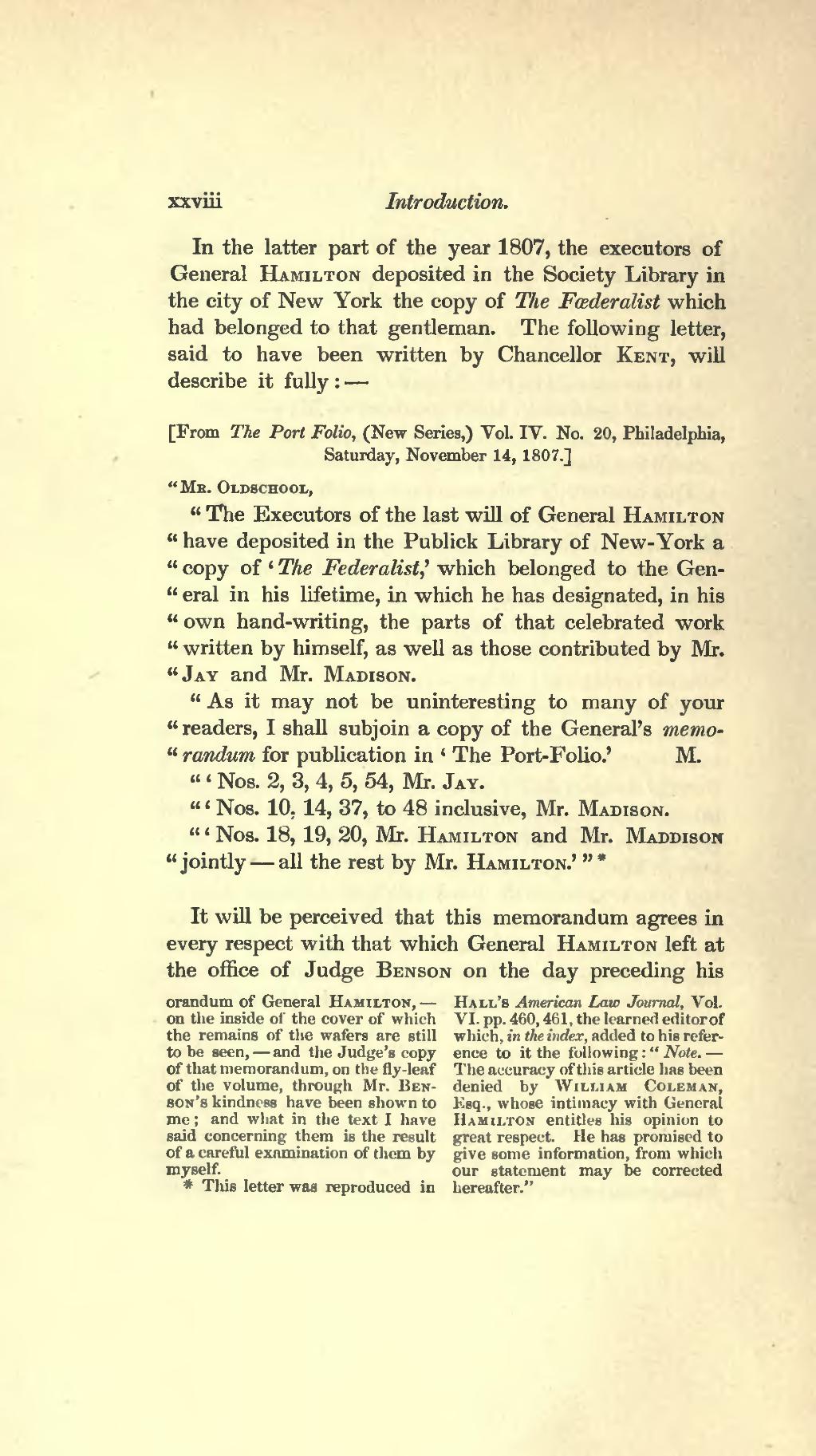In the latter part of the year 1807, the executors of General Hamilton deposited in the Society Library in the city of New York the copy of The Fœderalist which had belonged to that gentleman. The following letter, said to have been written by Chancellor Kent, will describe it fully:—
Mr. Oldschool,
The Executors of the last will of General Hamilton have deposited in the Publick Library of New-York a copy of 'The Fœderalist,' which belonged to the General in his lifetime, in which he has designated, in his own hand-writing, the parts of that celebrated work written by himself, as well as those contributed by Mr. Jay and Mr. Madison.
As it may not be uninteresting to many of your readers, I shall subjoin a copy of the General's memorandum for publication in 'The Port-Folio.' M.
'Nos. 2, 3, 4, 5, 54, Mr. Jay.
'Nos. 10, 14, 37, to 48 inclusive, Mr. Madison.
'Nos. 18, 19, 20, Mr. Hamilton and Mr. Maddison jointly—all the rest by Mr. Hamilton.'"[1]
It will be perceived that this memorandum agrees in every respect with that which General Hamilton left at the office of Judge Benson on the day preceding his
orandum of General Hamilton,—on the inside of the cover of which the remains of the wafers are still to be seen,—and the Judge's copy of that memorandum, on the fly-leaf of the volume, through Mr. Benson's kindness have been shown to me; and what in the text I have said concerning them is the result of a careful examination of them by myself.
- ↑ This letter was reproduced in Hall's American Law Journal, Vol. VI. pp. 460, 461, the learned editor of which, in the index, added to his reference to it the following: "Note.—The accuracy of this article has been denied by William Coleman, Esq., whose intimacy with General Hamilton entitles his opinion to great respect. He has promised to give some information, from which our statement may be corrected hereafter."
